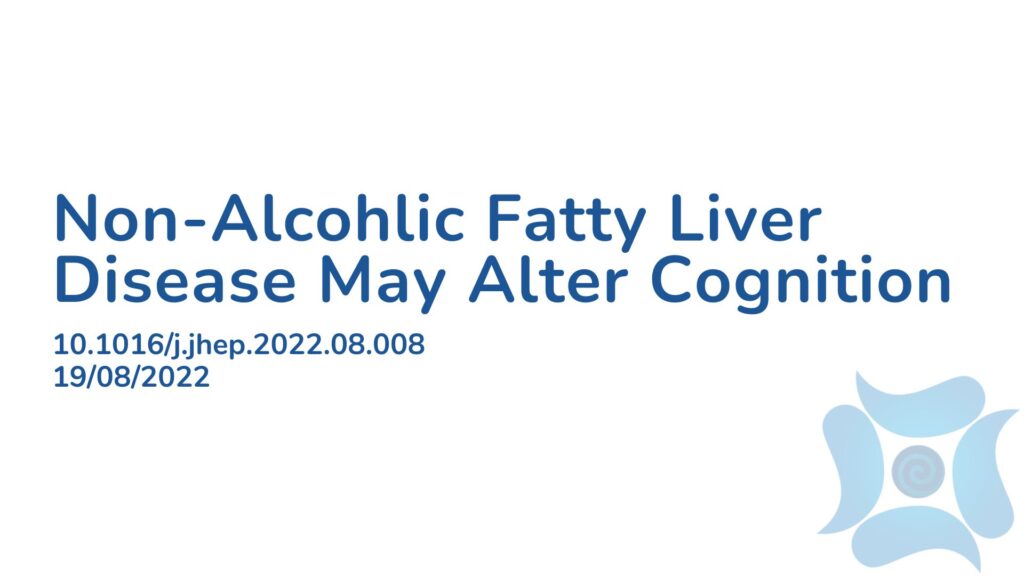Summary:
Non-alcoholic fatty liver disease (NAFLD) has been thought to contribute to cognitive decline however the reason why is unclear. This paper explored the hypothesis that NAFLD can alter cognition and physiology of the brain. The authors used behavioural tests on mice following 16 weeks of dietary changes (a high fat diet) and found that NAFLD and obesity was present, as well as anxiety and depression. Low grade inflammation to the brain was also present as well as other cerebral changes. The mice consuming a healthier diet did not develop NAFLD or obesity and behaved normally with healthy brain outcomes. This study therefore provides evidence that compromised brain health is present in concomitant obesity and NAFLD, emphasising not only the importance of protecting against NAFLD and obesity but also the presence of the liver-brain axis.
Abstract:
Background & Aims: Non-alcoholic fatty liver disease (NAFLD) has been associated with mild cerebral dysfunction and cognitive decline, although the exact pathophysiological mechanism remains ambiguous. Using a diet-induced model of NAFLD and monocarboxylate transporter-1 (Mct1+/−) haploinsufficient mice, which resist high-fat diet-induced hepatic steatosis, we investigated the hypothesis that NAFLD leads to an encephalopathy by altering cognition, behaviour, and cerebral physiology. We also proposed that global MCT1 downregulation offers cerebral protection. Methods: Behavioural tests were performed in mice following 16 weeks of control diet (normal chow) or high-fat diet with high fructose/glucose in water. Tissue oxygenation, cerebrovascular reactivity, and cerebral blood volume were monitored under anaesthesia by multispectral optoacoustic tomography and optical fluorescence. Cortical mitochondrial oxygen consumption and respiratory capacities were measured using ex vivo high-resolution respirometry. Microglial and astrocytic changes were evaluated by immunofluorescence and 3D reconstructions. Body composition was assessed using EchoMRI, and liver steatosis was confirmed by histology. Results: NAFLD concomitant with obesity is associated with anxiety- and depression-related behaviour. Low-grade brain tissue hypoxia was observed, likely attributed to the low-grade brain inflammation and decreased cerebral blood volume. It is also accompanied by microglial and astrocytic morphological and metabolic alterations (higher oxygen consumption), suggesting the early stages of an obesogenic diet-induced encephalopathy. Mct1 haploinsufficient mice, despite fat accumulation in adipose tissue, were protected from NAFLD and associated cerebral alterations. Conclusions: This study provides evidence of compromised brain health in obesity and NAFLD, emphasising the importance of the liver–brain axis. The protective effect of Mct1 haploinsufficiency points to this protein as a novel therapeutic target for preventing and/or treating NAFLD and the associated brain dysfunction.
Article Publication Date: 19/08/2022
DOI: 10.1016/j.jhep.2022.08.008




